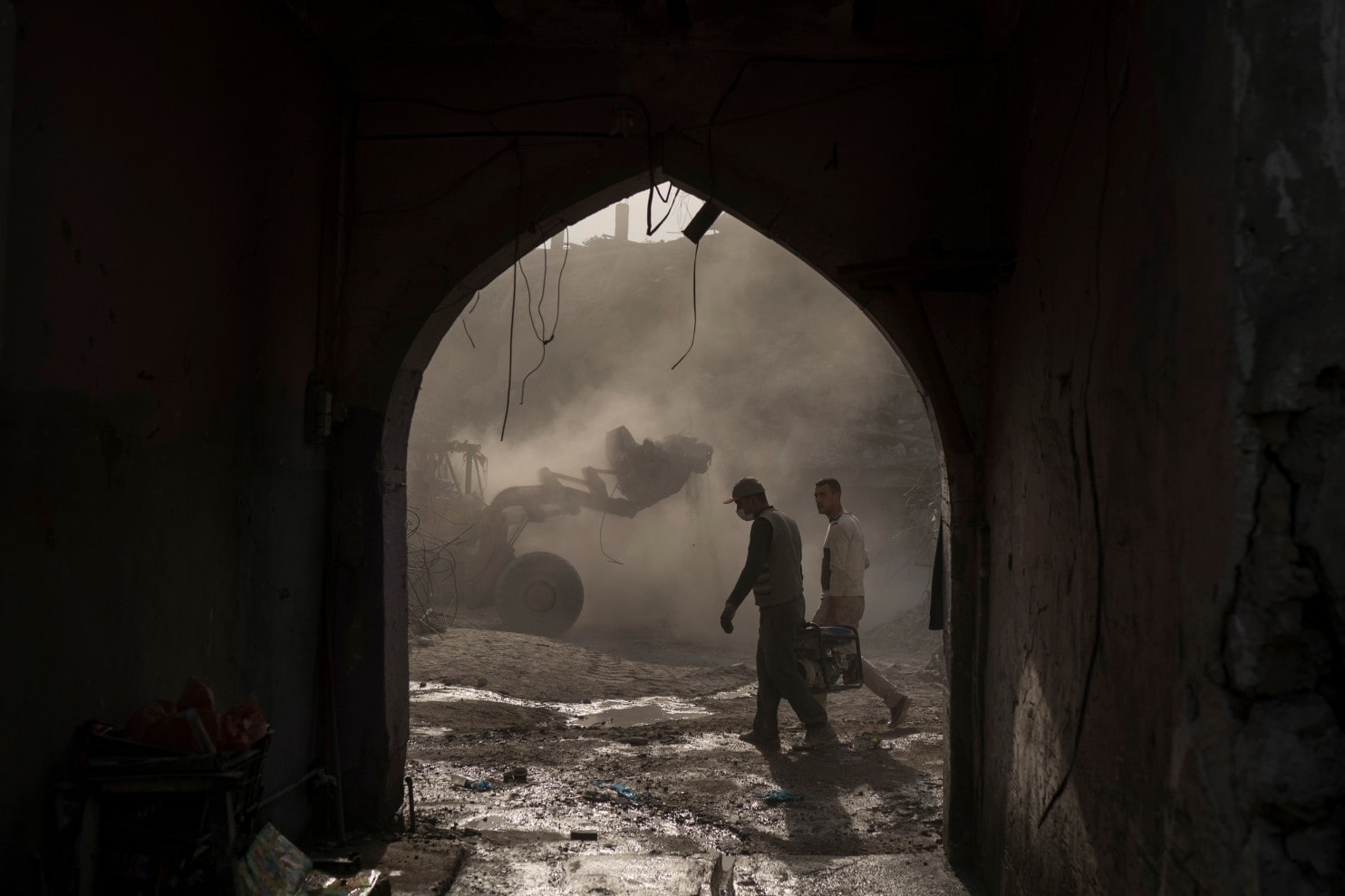Few ready to pay to rebuild Iraq after Islamic State defeat

MOSUL, Iraq — For nearly 2½ miles along the western bank of the Tigris River, hardly a single building is intact. The warren of narrow streets of Mosul’s Old City is a crumpled landscape of broken concrete and metal. Every acre is weighed down by more than 3,000 tons of rubble, much of it laced with explosives and unexploded ordnance.
It will take years to haul away the wreckage, and this is just one corner of the destruction. The Iraqi military and U.S.-led coalition succeeded in uprooting the Islamic State group across the country, but the cost of victory is nearly incalculable.
Three years of war devastated much of northern and western Iraq. Baghdad estimates $100 billion is needed nationwide to rebuild. Local leaders in Mosul, the biggest city held by IS, say that amount is needed to rehabilitate their city alone.
So far no one is offering to foot the bill. The Trump administration has told the Iraqis it won’t pay for a massive reconstruction drive. Iraq hopes Saudi Arabia and other Gulf countries will step up, and Iran may also take a role. The U.N. is repairing some infrastructure in nearly two dozen towns and cities around Iraq, but funding for it is a fraction of what will be needed. As a result, much of the rebuilding that has happened has come from individuals using personal savings to salvage homes and shops as best they can.
Nearly every city or town in former IS territory needs repair to one degree or another. The longer it takes, the longer many of those who fled IS or the fighting remain uprooted. While 2.7 million Iraqis have returned to lands seized back from the militants, more than 3 million others cannot and they languish in camps. Worst hit is Mosul; the U.N. estimates 40,000 homes there need to be rebuilt or restored, and some 600,000 residents have been unable to return to the city, once home to around 2 million people.
Corruption and bitter sectarian divisions make things even harder. The areas with the worst destruction are largely Sunni, while the Baghdad government is Shiite-dominated. The fear is that if Sunni populations feel they’ve been abandoned and left to fend for themselves in shattered cities, the resentment will feed the next generation of militants.
“The responsibility to pay for reconstruction falls with the international community,” said Abdulsattar al-Habu, the director of Mosul municipality and reconstruction adviser to Nineveh province, where the city is located.